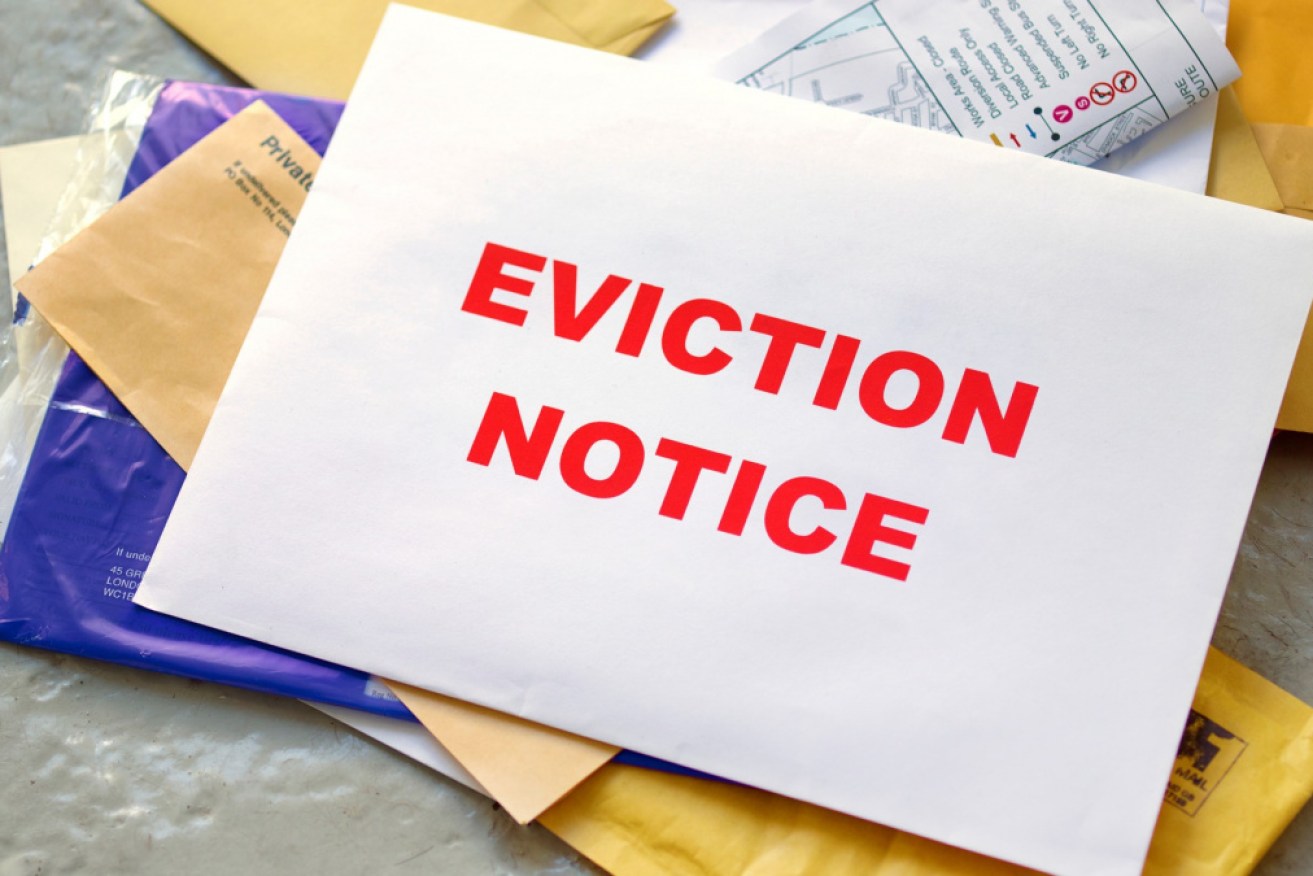Renters offered coronavirus relief as government pauses evictions


What happens when the moratorium on evictions stops? Women will suffer most. Photo: Getty
Australian renters struggling to cover their rent payments have been thrown a lifeline after the federal government introduced a six-month moratorium on evictions.
Under new rules announced on Sunday, commercial and residential landlords will be unable to turf out tenants who can’t pay the rent because of the coronavirus pandemic.
“There will be a moratorium on evictions for the next six months under those rental arrangements,” Prime Minister Scott Morrison said.
Tasmania was the first to implement these measures on March 25, giving renters a 120-day grace period if the pandemic leaves them unable to pay for the roof over their heads.
“Any appeals from tenants for a notice to vacate due to rental arrears that are currently waiting to be heard by the Magistrates Court will be put on hold,” said the state’s minister for building and construction, Elise Archer.
Incentives will be included for tenants to keep paying their rent through the pandemic where they’re able to do so, Ms Archer added.
But the remaining state and territory governments are yet to specify how they will apply and implement their moratoriums.
Moratorium welcome, but clarity needed
A Productivity Commission report found two-thirds of renters in the private market experience rental stress (defined as spending more than 30 per cent of their disposable income on rent).
With so many people under pressure at the best of times, Anglicare Australia CEO Kasy Chambers said a moratorium is a welcome measure.
“We’re thrilled that government has heard the call [for a moratorium],” she told The New Daily.
However, the lack of detail provided by government leaves many questions unanswered.
“We’re still pushing a little bit around, things like what will happen to arrears when the moratorium finishes, how we relieve tenants but still support small landlords for whom rent is their only income,” she said.
Dr Chris Martin, senior research fellow with University of New South Wales’ City Futures Research Centre, flagged similar concerns.
“An eviction moratorium in the present public health crisis we’re experiencing is essential to deal with both the health and economic aspects of the problem,” he said.
But it has to go further.’’
Dr Martin cautioned that by linking the eviction moratorium to financial hardship, it still leaves landlords with other ways to evict their tenants.
In most states, landlords could still force out their tenants without grounds to evict after their fixed-term agreement expires.
Without specifically addressing these concerns, Dr Martin said a partial moratorium will be the same as no moratorium at all.
Coronavirus highlights need for reform
One of the biggest problems facing Australia’s renters is the unforgiving legal structures governing disputes with landlords.
Banks and other financial institutions have a legal obligation to offer some flexibility to customers (through hardship provisions, for example), but landlords face no such requirements.
Consumer Action Law Centre chief executive Gerard Brody said this needs to change.
“Even before this crisis there should have been obligations on landlords to consider flexibility, whether that’s moratoriums or reduced payments to get through a tough time,” he told The New Daily.
“With that, importantly, there needs to be some kind of service that acts as arbiter to resolve any disputes fairly.”
Mr Brody noted that Australia’s financial service system includes a multitude of ombudsman services, such as Australian Financial Complaints Authority and the Private Health Insurance Ombudsman.
But there’s no equivalent service for renters.
Instead, the only path of recourse for renters is to take their concerns to a civil tribunal, which Mr Brody said is unlikely to recognise the unique circumstances posed by the coronavirus.
“Tribunals are typically run as law. They will follow what the law requires them to,” he said.
These hearings are also expensive and time-consuming, making it even harder for struggling renters to have their case heard.








